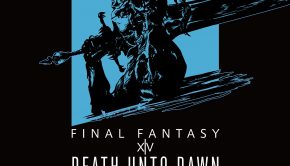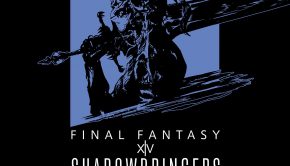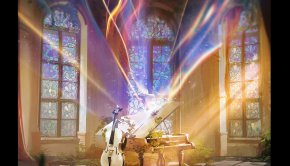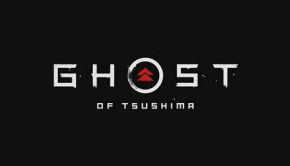Odin Sphere -Leifthrasir- Original Soundtrack
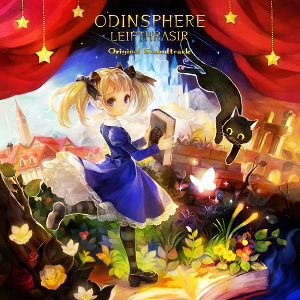 |
Album Title: Odin Sphere -Leifthrasir- Original Soundtrack |
| Record Label: Basiscape Records |
|
| Catalog No.: BSPE-1057/8 |
|
| Release Date: January 14, 2016 |
|
| Purchase: Buy at CDJapan |
Overview
In 2016, Vanillaware remade its fantasy action game Odin Sphere complete with an expanded score from Basiscape. In the nine years since the original game, the game’s composition team Basiscape have undergone many changes: two composers have left (Kimihiro Abe, Manabu Namiki), three members have arrived (Yoshimi Kudo, Azusa Chiba, Kazuki Higashihara), and their leader Hitoshi Sakimoto has increasingly passed the reigns to his junior employees. Reflecting these changes, Odin Sphere: Leifthrasir‘s score was almost entirely written by the company’s newcomers. Between them, they wrote some 23 pieces, including both brand new arrangements and adaptations of previous Odin Sphere themes. Basiscape Records released a two-disc soundtrack featuring all the new tracks from the remake, as well as five album arrangements.
Body
Of the five composers from the original game, Mitsuhiro Kaneda is the only one to make a prominent contribution to Odin Sphere: Leifthrasir. He brings back players into the world of Odin Sphere with serenading strings and fluttering woodwinds in “Elrit Forest”. With its broad, deep, and abstract sound, this composition perfectly matches the game’s 2D visuals and in many provides their third dimension. Equally effective in this regard is his arrangement of “Battle in the Twisting Streets – Final Chapter”. Elegantly phrased and briskly paced, it hints at the darkness underlying the game’s plot without going overboard as sometimes the original’s compositions did. “Back Alley in Titania” and its variation are also well-balanced, marrying strong melodies with the more abstract element of Kaneda’s sound to appeal to a wide range of audiences. The only other returnee from the original game’s soundtrack is Masaharu Iwata, who unfortunately is relegated to a superfluous role here: he channels the haunting orchestral/choral sound of his Final Fantasy XII compositions in “Endelphia: Land of Death” and its arrangement, between writing an extremely conservative arrangement of “Battle in the Netherworld” from the original Odin Sphere.
Still coming into his own, Kazuki Higashihara makes a prominent but somewhat disappointing soundtrack debut here. “Battlefields of the Raging Storm” mashes together signature elements of Hollywood and Basiscape throughout, even bringing in Kimihiro Abe’s signature snares at points. Yet while it has moments of excellence, the final product lacks cohesion or a unique voice. The second variation is significantly better, blending the foreboding and whimsical, martial and fantasy elements of the game and its soundtrack into one. Far less successful is his arrangement of the original game’s “Storming Battlefields”; the imbalanced orchestration of the A section ends up detracts from the original melodies, while the B section feels completely disconnected from the rest. Equally frustrating is “Volkenon Lava Pit”, which initially demands attention with its tribal beats and trumpet discords, but soon loses it as it goes nowhere meaningful in the rest of three minute playtime.
Perhaps the greatest young talent in Basiscape’s team, Yoshimi Kudo proves himself as an excellent orchestral composer after stellar efforts on the period Muramasa Rebirth and contemporary Raiden V scores. Much as Kaneda did in “Back Alley in Titania”, Kudo combines a highly lyrical core with rich development, timbral weight, and rhythmic thrust in “Nebulapolis”. The composition encompasses all aspects of Odin Sphere — setting, characters, narrative, and gameplay — into one single, cohesive four-minute experience. “Battle in the Land of the Devil – Final Chapter” transforms the somewhat bland march-like original into a five-minute epic boasting heart-renching violins and thunderous percussion. As heroic as it is threatening, it once again restores balance in Odin Sphere‘s once overbearing soundtrack. “Pain Behind the Bravery” is a relatively straightforward battle anthem, but no less enjoyable with its bright progressions and robust orchestration. While the sampling is excellent as usual, it would be incredible to here compositions like these arranged and performed by full orchestra.
Azusa Chiba also impressively adapt her musicality to the Odin Sphere sound. Always leaning towards softer sounds than her male colleagues, Chiba unsurprisingly ends up writing some of the lightest compositions here with “Forest Kingdom of Ringford” and “Maury’s Touring Restaurant”; yet both are highly intricate compositions both in respect to their timbral and rhythmic features, as well as how they beautifully synchronise with the mystical game’s visuals. “Winterhorn Ridge”, on the other hand, transitions from a mystical introduction featuring a tapestry of tuned percussive cross-rhythms into a disorientating core of brutal brass and desolate suspensions. In line with the rest of the soundtrack, the sampling and mixing is professionally done by Masaaki Kaneko, though one overly-pronounced, excessively-repeated celesta motif does sometimes throw an otherwise exquisite composition off balance. Chiba also proves herself to be an impressive arranger with her surprisingly rich takes on the game’s two most percussive stage themes, “Volkenon Lava Pit” and “Battle in the Land of Fire”. As with “Winterhorn Ridge”, “Volkenon Lava Pit -Final Chapter” in particular captures the sense of the protagonists being thrown into pandemonium as its whimsical introduction steadily turns dark and twisted.
The soundtrack is bookended by two interpretations of Hitoshi Sakimoto’s ethereal main theme from the original game. The opener features a gorgeous choral performance but is tragically short, while the ending arrangement once again blends Shanachie’s vocals with Celtic instruments. To finish off, there are five album-exclusive arrangements of material from the Odin Sphere and Odin Sphere: Leifthrasir soundtrack from the Basiscape team. Kaneda and Higashihara adhere quite closely to the concepts of the originals in their interpretations of “Elrit Forest” and “A Fate Accepted”. Kudo manages to deconvolute the rasping sounds of “Battle in Ringford” with yet another stellar contribution, while Iwata finally gets the chance to shine with his brooding piano and oboe interpretation of “Melody of Mourning”. However, the real standout here is Azusa Chiba who somehow manages to transform the utmost darkest piece in Odin Sphere‘s already intense playlist, “Rise and Invasion”, into a vast, uplifting soundscape of Celtic and choral sounds. In doing, she manages to still capture the idiosyncratic musical mastery of the original while all the while introducing her own quirks and complexities. While some arrangements are more ambitious than others, all in all they’re fine additions and feature some very pleasant surprises.
Summary
Odin Sphere was Basiscape’s first high-profile work as a team. In the nine years since then, the company has in many ways matured as its members gained experienced and cultivated their own sound. Odin Sphere: Leifthrasir reflects this by showing how much Kudo, Chiba, and Kaneda have matured and diversified since they started at the company. Between them, the composers manage to seamlessly integrate into Odin Sphere‘s visual and musical landscape, while balancing the soundtrack emotionally and enhancing it compositionally and technically. Overall, it is a superior soundtrack to the original’s. However, as it is a supplement rather than replacement soundtrack, it is still inherently tied to the original work and it will be necessary to purchase both the Odin Sphere Original Soundtrack and the Odin Sphere -Leifthrasir- Original Soundtrack to appreciate the score in full.
Do you agree with the review and score? Let us know in the comments below!
4
Posted on April 17, 2016 by Chris Greening. Last modified on April 17, 2016.

